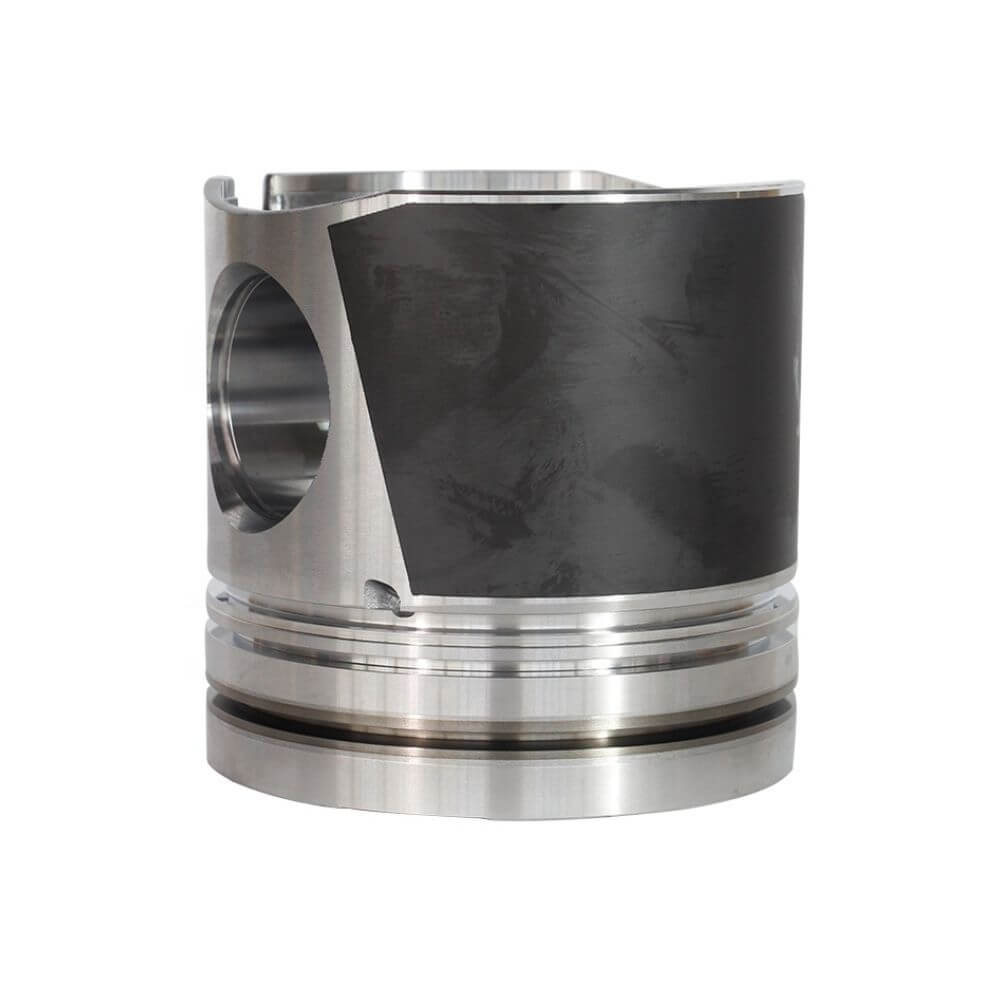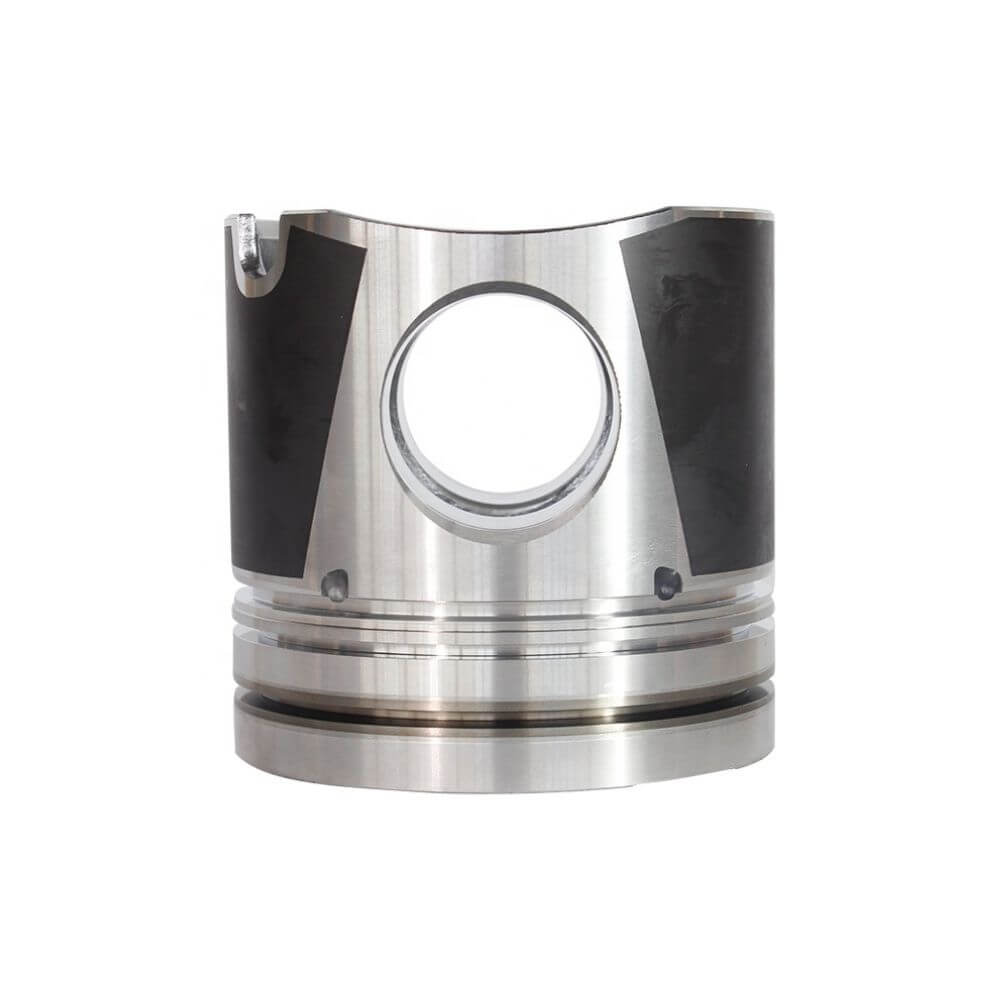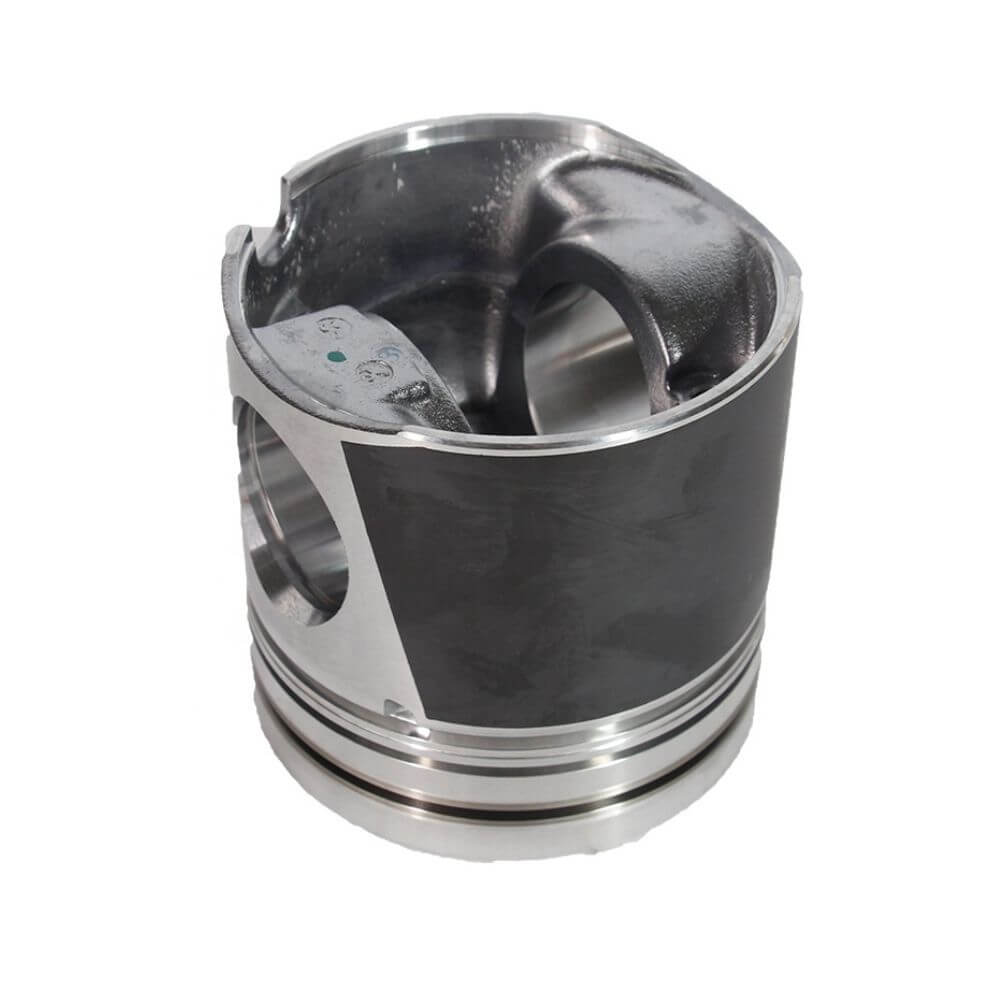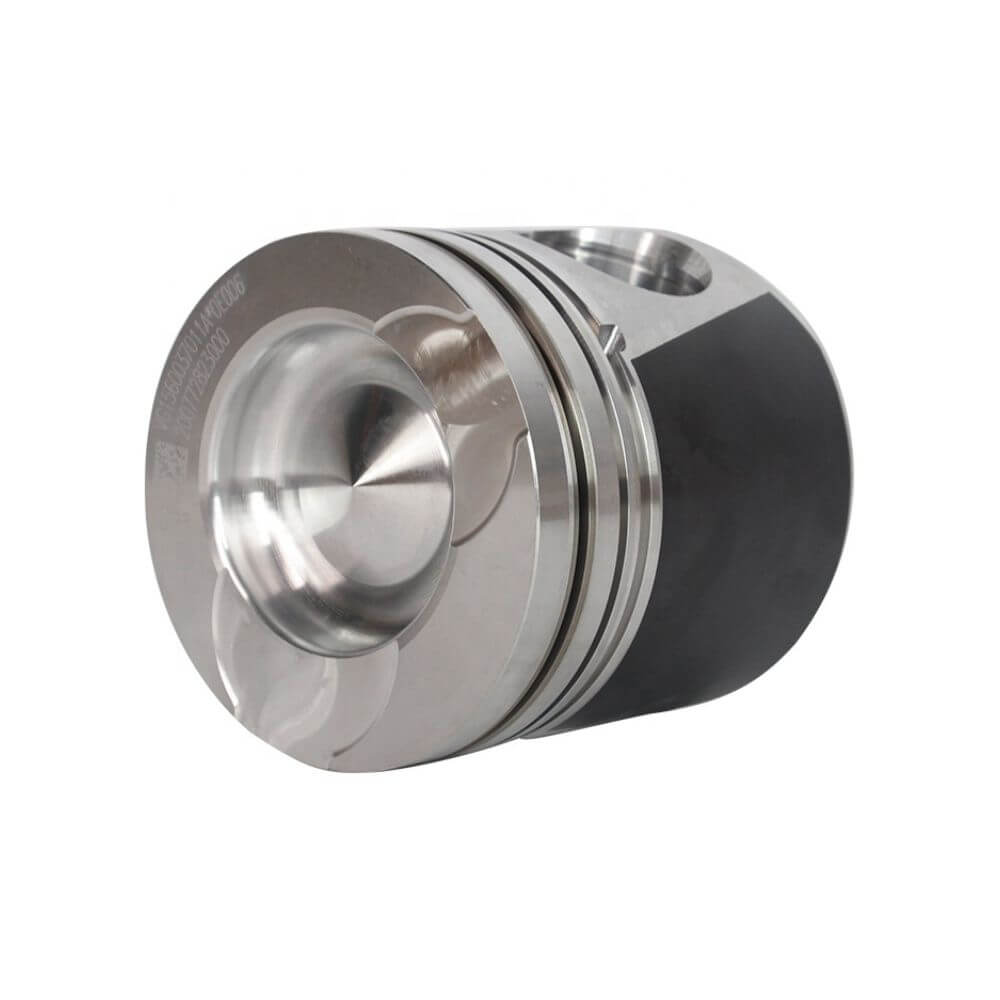The piston is the reciprocating part in the cylinder block of the heavy-duty truck engine. The structure of the truck engine piston can be basically divided into 3 parts, including the top, head, and skirt parts. The top part of an engine piston is the main part of the combustion chamber, and its shape has something to do with the type of combustion chamber you selected. What’s more, flat-top pistons are widely applied in gasoline engines, which have the advantage of a small heat-absorbing area. Generally speaking, there are various pits whose size, shape, and position should adapt to the requirements of the diesel engine’s mixture formation and combustion.
The piston usually works under the status of high temperature, high pressure, high speed, and poor lubrication.
HIGH TEMPERATURE
The piston is in direct contact with the high-temperature gas while the instantaneous temperature can reach up to 2500K+. In this circumstance, the heat dissipation conditions are quite terrible, therefore, the temperature of the truck engine piston is so high during the course of running that the top part’s temperature which is unevenly distributed can rise up to 600-700K.
HIGH PRESSURE
The top part of the heavy-duty truck engine piston is subjected to high gas pressure and the working stroke pressure is the largest. The intensity of pressure of the gasoline engine can reach 3 to 5 MPa, and the diesel engine’s pressure can achieve 6 to 9 MPa, which makes the piston bear the effect of side pressure.
HIGH SPEED
This Engine Piston moves at a high speed in the cylinder (8 ~12m/s) for reciprocating motion and a large inertial force will be generated as the speed is constantly changing, which makes the piston subject to a large additional load. When the piston works under such harsh conditions, it will deform and accelerate the process of wearing out. At the same time, additional load and thermal stress will come about while the truck engine piston would be chemically corroded by the gas.



